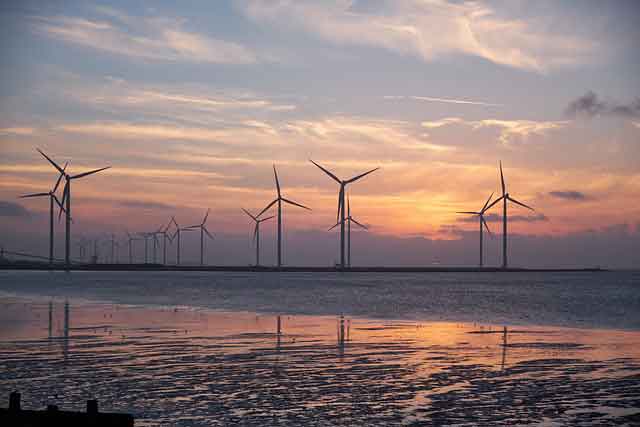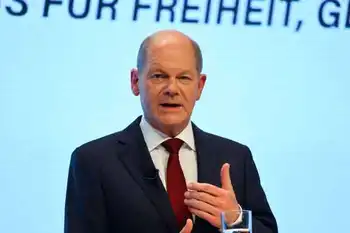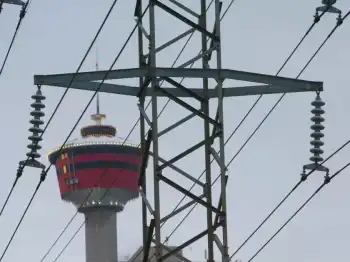Canada Joins ‘Anti-Kyoto’ Club
UNITED NATIONS - Canada will join a small coalition of countries that have spurned calls for mandatory pollution-reduction targets to fight climate change despite producing more than half the world's emissions.
Canada will sign on to the Asia Pacific Partnership at an Oct. 15 meeting in Delhi, India, Prime Minister Stephen Harper told reporters. The announcement came at a high-level meeting of 150 countries intended to lead to a new treaty that will succeed the Kyoto protocol when it expires in 2012.
"This will be another international forum where Canada can pursue its objectives in terms of fighting climate change," Harper said.
Formed in 2005, the Asia Pacific Partnership includes the United States, China, India, Japan, Australia and Korea.
But it has been accused of undermining efforts by the United Nations to halt global warming and been dubbed the "anti-Kyoto" by environmentalists. The U.S. initially opposed Japan's membership because it signed on to Kyoto and the Bush administration feared it might take a "Kyoto-like `anti-growth'" position within the group, according to declassified U.S. government documents obtained by Greenpeace USA.
But Harper said Canada's participation in the group would complement, not replace, its role in the UN process, and it does not mean the country will back away from targets to reduce emissions.
"We have to have the participation of all the large polluters and all the large polluters are members of the (Asia Pacific Partnership)," Harper said. "Without the participation of these countries you can't have an efficient protocol."
China and India are exempted from Kyoto targets because they are classified as developing nations. The United States and Australia have spurned Kyoto targets, calling them "arbitrary."
Japan and Canada have ratified the Kyoto treaty, but the Harper government says there is no way to meet the country's commitments without risking economic ruin, because of inaction by the previous Liberal government.
Japan also says it can't meet its commitments.
Harper stressed the importance that any post-Kyoto agreement include all of the world's major emitters, and he has also cast Canada as a "bridge" between European Union countries that have made great strides to reduce their environmental footprint, and the United States, which has done little in comparison.
To that end, he staked out a middle ground position between the two in a letter to UN Secretary General Ban Ki-moon and released by the Prime Minister's Office. Harper said Canada wants a post-Kyoto treaty that forces all countries to cut emissions in half by 2050.
The EU has made similar demands, but they use a Kyoto baseline of 1990 whereas Canada has proposed using 2006 as the benchmark for emissions reductions.
Environmentalists allowed that Harper's proposed 2050 emissions target is a middle-ground offer between the EU and the U.S. But they criticized him for remaining silent on earlier targets, which they say are necessary to focus countries on meeting their long-term goals.
"He's done the first step, not adequately... and he hasn't done anything else," said Dale Marshall, of the Suzuki Foundation. "He's been in power for a year and a half now."
Canada's membership in the Asia Pacific Partnership is likely to turn heads in an arena where the country has already been singled out for casting doubt on the Kyoto accord.
Responding to questions from a Canadian reporter, French President Nicolas Sarkozy praised Harper as "very engaged" in the climate-change fight.
But he also said the UN should be the only world body tasked with coordinating the effort. His comments were a veiled criticism about a meeting held in Washington with representatives of the UN, EU and a dozen other countries including Canada.
"It's not a question of Canada or this or that country," Sarkozy said. "The challenge is universal. That's why I believe that the only legitimate body (to deal with this) is at the United Nations."
Related News

New York Finalizes Contracts for 23 Renewable Projects Totaling 2.3 GW
NEW YORK - In a significant milestone for the state’s clean energy ambitions, New York has finalized contracts with 23 renewable energy projects, totaling a combined capacity of 2.3 gigawatts (GW). This move is part of the state’s ongoing efforts to accelerate its transition to renewable energy, reduce carbon emissions, and meet the ambitious targets set under the Climate Leadership and Community Protection Act (CLCPA), which aims to achieve a carbon-free electricity grid by 2040.
A Strong Commitment to Renewable Energy
The 23 projects secured under these contracts represent a diverse range of renewable energy sources, including wind, solar, and…




